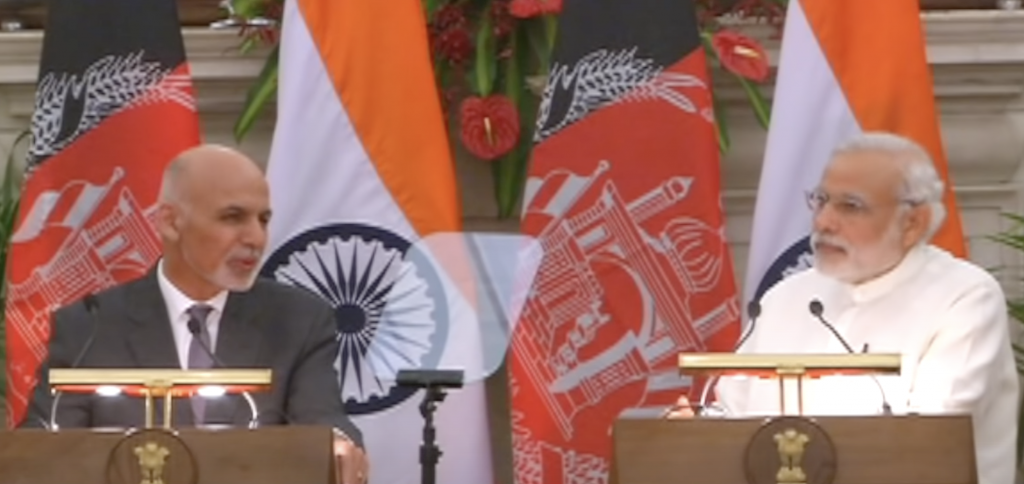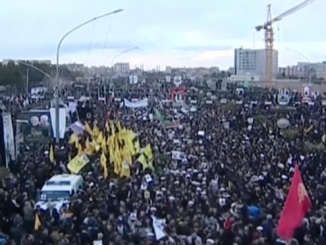
The land of “Islamic Republic of Afghanistan” officially got its Independence in the year 1919. The country has been governed by a history of various systems of government shaping the political regime of Afghanistan. Monarchy, Theocracy, Dictatorship are one of the most ruling highlights for the land of Afghans since the early eighteenth century. By the 1840s British forces invaded the country leading to a robust control over state and its foreign affairs until Emir Amanullah khan declared independence from British influence in early 1900. Regardless the nation has been under direct influence of foreign countries such as the Soviets and United States by the Umbrella of “War on Terror” against terrorist agencies such as Al-Qaida, rooted in the heels of Afghan mountains.
In early 2000s, US President Obama unveiled its new strategies for Afghanistan where the proposed plan was to train and bolster the Afghan Army and law enforcing agencies in order to support civil development. While in the year 2011, for the first time Afghanistan signed its strategic pact with India observing the training of Afghan personnel through India’s military assistance which aimed at aiding Afghanistan.
Most recently, the Biden policies introduced its arrangement for the fate of Afghanistan. The strategy incorporates both the chance of dividing the government among Kabul’s chosen representatives and the Taliban and an acknowledgment of the significant role that regional countries should play after the withdrawal of U.S. forces from Afghanistan. In a letter to Afghan President Ashraf Ghani, U.S. Secretary of State Antony Blinken proposed a few stages, including a United Nations-level gathering with the foreign minister of China, India, Iran, Pakistan, Russia, and the United States to build up a “unified approach” to harmony.This conventional consideration of India in the peace negotiations, which as of not long ago had seen New Delhi may change the dynamics and behavior of regional players just as for the Taliban and the Afghan government.
As indicated by certain reports, Russian apprehensions had been careful about including India, likely on account of its already developed bond with Beijing and Islamabad. Pakistan has, obviously, been steady in standing up against any Indian inclusion in Afghanistan. China’s relationship with India, then, has seen a series of turmoil over the period of the last few years.
India, as far as its role in the peace process has been concerned is adapting the strategy of “gradual inclusion” within the state of Afghanistan, It is anxious to have a say yet has been awaiting its chance steadily, New Delhi claims that it was prepared to join and play a huge role in the regional and state politics.
In September 2020, Indian External Affairs Minister Subrahmanyam Jaishankar joined the debut meeting of intra-Afghan talks in Doha, tending to the social event by means of video urging over the continuation of peace process in the country with the support of Afghan population.
For Afghanistan, India’s inclusion into the discussions ought to be a positive step if the endgame is to see a protected, stable, and financially sound country. Whereas the point of consideration can be the frosty relationship between India and Pakistan and certainly its implications for Afghanistan considering that both countries are keenly looking forward to Afghanistan for the will peace and development. While Pakistan in strengthening its economic and infrastructural roots under the flagship project of Belt and Road Initiative (BRI), China-Pakistan Economic Corridor CPEC via geographical link with Afghanistan through the network of road linkages. On the contrary India seeks to look forward to backing Afghanistan through forming alliances for economic and social well-being of the country.
Over the period of time, the two countries Afghanistan and India have kept up robust bilateral ties, with New Delhi frequently focusing upon establishing formative and development ventures. The interest driven technique has assisted India with producing a lot of generosity for itself while giving Afghanistan required help within areas, like literacy and education, health care, water system, transport, rural development and basic infrastructural development.In February, Afghanistan likewise got 500,000 dosages of AstraZeneca’s COVID-19 antibody from India, the first shot to arrive in the country.
As of now, if India joins U.S President Joe Biden’s so called peace process, it should make its efforts to evacuate Taliban’s rooted safe havens from the land of Afghanistan. Furthermore, considering India’s central role in the regional politics we are keen to observe India’s encouraging role for Afghanistan’s positive prestige globally.
Over the time, while Washington is firm on pressurizing Islamabad after every now and then to work on evacuation of militant groups from Afghanistan, surprisingly no other regional state is willing to play its role for the similar purpose so far. Whereby in order to prosper positively for Afghanistan it is imperative countries such as China, Pakistan, Iran, Russia, United States and the new alliance formulated with India to address the issue in a profound manner by resting their will on one page. Especially with in the context of South Asian politics, Pakistan and India’s recent move to participate in Pakistan based military exercise “Pabbi-Antiterror-2021”which was announced during the 36th meeting of the regional Anti-terrorist structure (RATS) held in Tashkent, Uzbekistan under the aegis of Shanghai Cooperation Organization (SCO) has itself marked history of military cooperation among the two nations for the first time stressing upon confidence building measures and cooperation not only for one another but also for the entire Asian complex directing towards peace and tranquility on Afghan land.
![]()




Be the first to comment